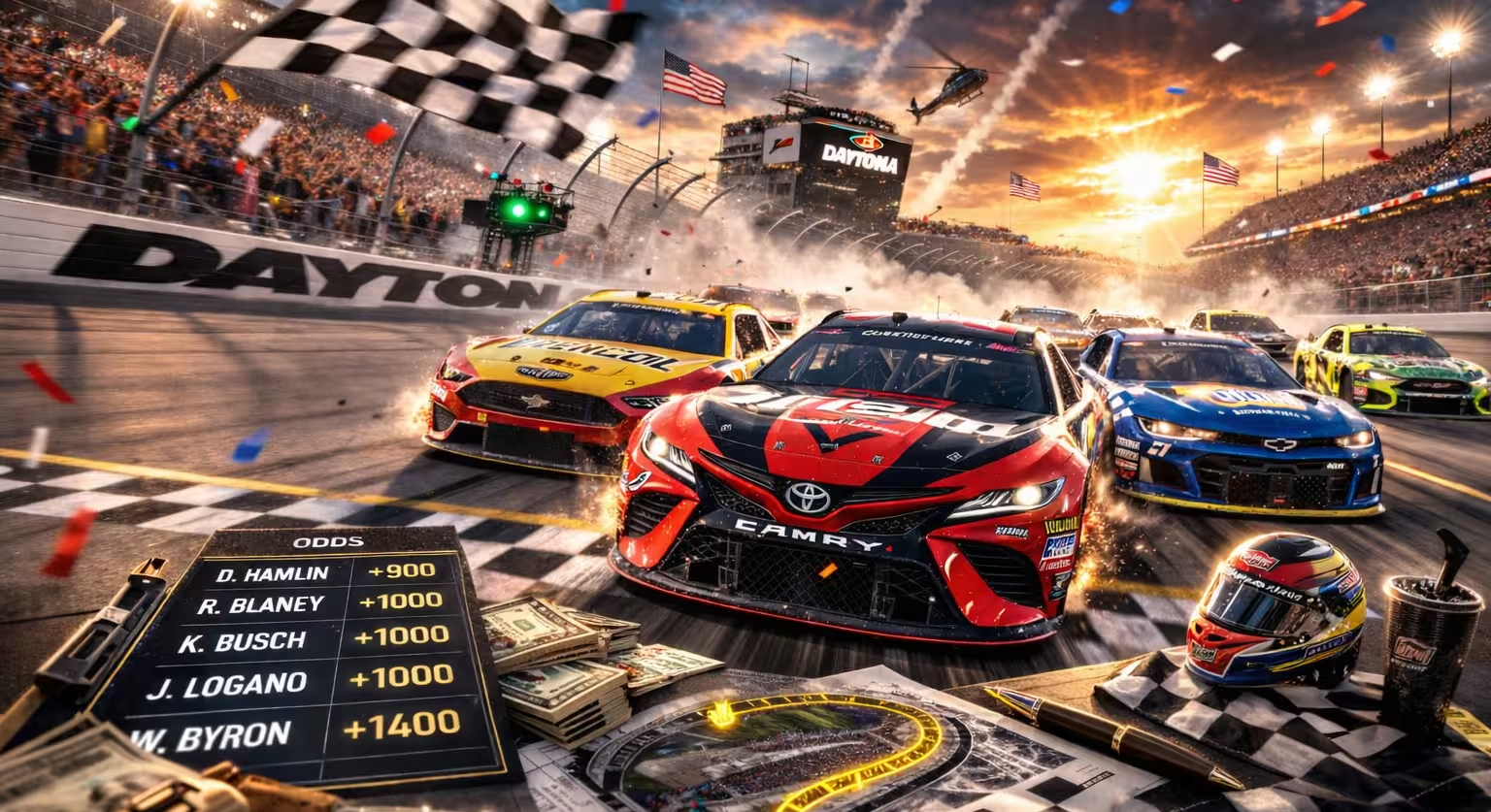Are Loot Boxes Gambling? The Debate Around Video Games

The word “loot” is such an adorable term. It’s been used for centuries by pirates, bankers, financiers, mobsters, and thieves! The word can be used in a positive or negative connotation, but it’s still cute even when it’s the latter.
Speaking of the one-syllable term, we need to talk about a specific kind of loot: loot boxes.
These babies are one of the hottest things in the digital space, but what are they? They’re virtual “mystery boxes” in video games and super popular.
But, yes, there’s a “but,” because players spend so much loot on the chance-based rewards, it’s raised some red flags.
Are loot boxes simply harmless fun for gamers, or are they really a form of gambling in disguise? This question is important: global players spend billions on loot boxes each year, and regulators from Australia to Europe are debating new rules.
The biggest concerns? That players, who are often underage, can develop addictive spending habits, and the lack of transparency about odds.
We are gonna look at both sides: how loot boxes work, why critics compare them to slot machines, how industry defenders respond, and what regulators worldwide are doing. We’ll also examine the evidence and data, from academic studies to real-world examples, so you can understand the growing gambling vs. gaming debate and what the future could look like under more and tighter scrutiny! Let’s get that loot!
What Are Loot Boxes?
Loot boxes are digital containers in video games that players open to receive random virtual items. They can usually be earned in-game or bought with virtual currency (usually purchased with real money). Because the contents are unknown until they are opened, they are often described as “mystery packs” or “grab bags.” EA’s FIFA Ultimate Team (FUT) mode sells packs of 12 virtual soccer player cards for about $10, and getting a top-tier player in a pack is very rare (EA says it’s usually under 5%). Blizzard’s Overwatch gives cosmetic loot crates; shooter games like Counter-Strike or Call of Duty sell randomized weapon skins; even mobile titles use “gacha” draws for characters. A UK House of Commons report defines loot boxes as “features in video games which may be accessed through gameplay or purchased with in-game items, virtual currencies, or directly with real-world money.”

Loot boxes typically work by chance; a player pays (or earns) a loot box, clicks “open,” and sees animated reveal effects (flashing lights, sounds) before random items drop into their inventory. Items are graded by rarity (common, rare, legendary, etc.), with expensive or powerful items being much harder to obtain. Some games even add “pity-timers” to slowly increase odds after many attempts, but the core mechanism is still random. This chance-based model contrasts with purely skill-based progression: you cannot improve your odds by playing better; you can only open more boxes. In that sense, buying a loot box is like opening a blind box of collectibles: you are paying for uncertainty. Unlike earning a specific reward through gameplay, you’re gambling on what comes out. It’s not a coincidence that loot boxes are called digital booster packs, as they’re “akin to opening a pack of Pokémon or baseball cards” (but in video game form).
Games all vary in how they present loot boxes. Some give them as free rewards (level-up bonuses in Apex Legends, or Overwatch giving one box per play session), and others require an explicit purchase with real cash (FIFA Points, in-game gems, etc.). Players use an in-game currency bought with real money to open boxes.
Fortnite’s Save the World mode used to offer randomized “Loot Llamas” as paid packs. Regardless, the outcome is always the same: a player pays (or uses currency) without knowing the result in advance. In most games, every loot box is a separate gamble on getting something valuable. The uncertainty, along with animations and the lure of “rare drops,” is what has drawn the comparisons to gambling.
Loot boxes are random-reward systems built into games. They take the form of an in-game chest or pack, whose contents are revealed after purchase. Popular examples include FIFA Ultimate Team packs, Overwatch loot crates, and countless mobile “gacha” draws. Because the items are random, analogies to card packs or casino draws apply: you pay real money, open a box, and hope for the best. The debate is if that makes them innocent fun or if it’s just gambling with a new digital face.
Why Loot Boxes Feel Like Gambling
Loot boxes tap into psychological mechanics very similar to traditional gambling. Opening a box triggers anticipation and excitement: you hear upbeat music, see flashing lights, and wait to see what you’ve won. Researchers found that this mimics the high of a slot machine’s spin. Developers “deliberately design these systems to ramp up anticipation.” In FIFA packs, opening a box plays celebratory sounds and slow reveals, echoing a casino show. This controlled suspense encourages players to keep opening more boxes, chasing that rush. The technical term is variable ratio reinforcement: unpredictable rewards keep you hooked more than fixed rewards, because you never know when the next big win will come. It’s the same principle that makes slot machines so addictive, and loot boxes use it to full effect.
The financial aspect deepens the similarity. In both gambling and loot boxes, you risk real money for an uncertain virtual outcome. When you spend cash on a loot box, you don’t know if you’ll get something mediocre or amazing. If it’s the former, you may be disappointed and tempted to try again, which is a behavior known as “chasing” a rare item. Players often describe buying multiple boxes just to get one elusive skin or player, echoing how a gambler might chase a jackpot after a near miss.

- An academic study found that higher loot box spending correlates with gambling-like behaviors: the more money people put into packs, the more likely they are to report “chasing losses” and other problem-gambling signs.
- Another research group found that paid loot boxes are “conceptually similar to gambling, both structurally and psychologically,” because the player can “win” something valuable or “lose” by not getting the desired item.
Near-misses and “lucky streak” tactics in games also feed the gambler’s brain. Some games will show you what almost came out before the final result, tempting you to try again. Others offer rare “one-time” items that tease you to keep spending.
A report by Gambling Research Exchange Ontario observes that many loot-box designs share slot-machine features: frequent small wins and the rare big win. As they put it, opening a loot box is made rewarding with satisfying visuals and sounds, punctuated by occasional jackpots, which is exactly how casino games keep players engaged. Even the so-called “pity timers” (guarantees after a lot of tries) mimic features like progressive jackpots that make gamblers feel like luck is on their side.
The emotional and neurological effects overlap as well! Loot boxes can give players dopamine hits: that hit of pleasure when a rare item drops is really similar to what a slot machine pay-off does in your brain. Players have said that it feels like gambling adrenaline.
A German study found that acquiring rare loot box items was more “arousing and urge-inducing” for players, much like a big slot machine win, and that rush is a very real thing. This is why so many players report an urge to repeat the action: each box is like pulling the lever or scratching a lottery ticket. When a game lets you see the odds, you might think twice. But if not, you’re trading in illusions for hope. The risk-reward highs and lows of loot boxes mirror traditional gambling: you spend, you wait, and you may win big or bust, all without any skill needed.
All of this is why many observers say loot boxes feel like gambling. They use the same psychology: the tension of the unknown, the dopamine reward of a “jackpot” drop, and the sinking feeling of a dud. Gamers call it “a slot machine built into a video game.” And studies have found that the more money someone spends on loot boxes, the more they can resemble a problem gambler.
The Case Against Loot Boxes
Critics argue that loot boxes are deeply exploitative, especially to young or vulnerable players. One major concern is that children, who play these games by the millions, may not understand how gambling-like mechanics work. A UK Government report explicitly warned that “risks are likely to be higher for children and young people.” Children chasing virtual rewards are basically being primed for real gambling later.
Some game designs even feature flashy cues and near-miss animations that intentionally trigger psychological responses similar to those found in slot machines. Stories abound of kids who accidentally rack up huge charges on their parents’ cards or use savings to open loot boxes. The Guardian recounts a case of a 13-year-old buying dozens of FIFA packs, pressured by friends who had built teams through heavy spending. Researchers worry that this is not just a hypothetical: the FTC has warned that children get “addicted to gambling for random chance” via gacha games.

Lack of transparency is another sore point. For much of the loot box era, game makers did not disclose the odds of getting particular items. Without seeing the real percentages, players have complained that they are misled about the likelihood of rewards. Only recently have platform holders forced change: Apple and Google now require games to reveal loot box odds beforehand (and China has demanded it too). But critics say these measures came after years of players paying for what adds up to blind gambling. Until the rules changed, kids and adults had no idea they might be spending hundreds of dollars for effectively a 5% chance at a “legendary” item, and consumer advocates call this a bait-and-switch.
The design mechanics of many loot box systems are also seen as deliberately addictive. Analyses of popular gacha games highlight features such as “limited-time rates,” “step-up guarantees,” and “collection completions” that encourage players to spend more to obtain the final rare reward.
If you need one last item to complete a set, the game will coax you to keep buying boxes, much like how a slot machine’s near-miss nudges players. Critics liken this to the “dark pattern” of exploiting human psychology: games will make each new box feel like it could be the big win, even though it is mathematically unlikely to be. Human brains will chase that uncertainty, which is a behavior that has been well-documented in gambling behavior.
- Real-world backlash only underscores these issues. Players in countries like Belgium and the Netherlands have banned or fined games for their use of loot boxes, treating them as unlawful forms of gambling. In Belgium, the Gaming Commission ruled that loot boxes met the legal definition of gambling and prohibited them, leading companies to pull certain games from that market. In France, lawyers filed a lawsuit against EA, arguing that FIFA packs are de facto gambling for minors.
- And in the UK and US, unhappy customers have filed class-action suits claiming loot boxes violate state gambling laws. Numerous gaming news stories highlight “whales,” aka big spenders (again, usually teenagers), who are shelling out thousands on packs. Studies back up the anecdote: a global survey found loot box spending was “strongly correlated” with problem gambling symptoms. Pro-gambling campaigners warn that loot boxes introduce children to the same risks (anxiety, financial harm, addictive loops) long before they can legally gamble.
Critics see loot boxes as predatory; they target engaging game audiences, usually minors, with an unknowable gamble. The absence of clear odds, combined with exploitative reward schedules, leads many critics to classify loot boxes as a dangerous form of gambling marketing. As a psychologist put it, loot box mechanics use gambling strategies to keep players hooked. This has led to calls for regulation or bans in many countries, and for consumers to be super cautious.
The Case for Loot Boxes
Supporters of loot boxes, which include many game developers and players, argue that they are a legit game feature and not the scourge that critics claim them to be.
Firstly, they emphasize that loot boxes are optional purchases that are not mandatory. Players can enjoy the core game without paying; loot boxes only offer extra or cosmetic content. Shooters (Overwatch, Apex Legends) let players earn loot boxes by leveling up, or choose to spend money for faster access, but you never have to buy them to play.
Companies argue that as long as no one is forced to purchase, it’s a fair choice: you’re just paying for an element of surprise. Gamers love the thrill of the “surprise,” kind of like opening a pack of baseball cards, and see it as a form of entertainment. Game industry blogger Ian Griffiths defends loot boxes as a “fun, common and generally well-accepted part of games.” He points out that famous titles like Diablo III and Borderlands 2 are built around random loot; players “really do love loot” when it’s handled well. Random rewards have been popular in game design long before microtransactions, he said, and they add unpredictability and replay value just like dice do in Monopoly.
Secondly, defenders note that loot boxes are usually purely cosmetic. In most games, the items won (skins, avatars, voice lines) do not affect gameplay. This means that players who choose not to spend are not at a disadvantage in competition.
By contrast, loot boxes that give gameplay power are highly controversial (and many such systems have been reworked or removed following backlash). When only looks or collection prizes are at stake, backers say it’s no more unfair than buying a custom outfit or a rare trading card pack. It’s comparable to a wardrobe or collectible purchase; the player’s “win” is satisfaction or social status, not more in-game currency or ability. Industry groups like the Entertainment Software Association argue that if no real-world payout or gameplay edge is involved, loot boxes should not be equated with gambling.
Legally, defenders point out one main difference: loot box prizes usually cannot be cashed out for cash (at least officially). Most jurisdictions define gambling by the presence of a real-money reward or payout. Because loot boxes typically yield virtual goods with no guaranteed real value, many game companies argue that they lie outside of gambling laws.
The UK Gambling Commission has repeatedly stated that since the chance-based item has “no money value,” it does not meet the legal definition of a bet. Similarly, in the U.S., there is no federal ban on loot boxes; they are treated as part of the in-game economy, rather than regulated as gambling. Some industry analysts note that, practically speaking, publishers and platform holders (Apple, Google, Sony, Microsoft) have simply decided it’s easier to add transparency (as they have) than to eliminate a lucrative feature.
There are real examples of loot boxes coexisting with player satisfaction.
- Overwatch’s loot crates (prior to Overwatch 2’s changes) were often cited as a relatively benign model: players could earn multiple boxes free each week, and the items were fully cosmetic.
- Games like Smite and Fortnite: Battle Royale have given away loot boxes or Surprise Egg-like bundles as player rewards, treating them more like carnival prizes than gambling.
- Even in sports games, EA has implemented “preview packs” in FIFA (letting you see pack contents before buying) to address concerns; a move some saw as at least a partial step toward fairness.
And many in the industry argue that loot boxes support the business model of free or low-cost games. Without them, developers say they would have fewer resources to add content or keep servers running; battle passes and cosmetics also require funding.
The case for loot boxes stresses choice and fun. As long as purchases are voluntary? Items are mostly non-essential and cosmetic, and games offer alternate ways to earn content; players love the surprise element without any issues. Some consumers like getting a random item because it can feel like a bonus. Proponents compare loot boxes to collectible card packs or mystery toys that generations have loved. They point out that transparency is improving; after years of complaints, Apple and Google now require developers to disclose drop rates before purchase, and console makers display an “In-Game Purchases (Random Items)” label on ratings. In this view, better information and parental controls are the answer, rather than banning the feature entirely.
The loot box system, they argue, is just a modern twist on an old excitement: you pay a small sum and see if you get something rare. If done so responsibly, the reward schedule can add an element of excitement without necessarily harming players.
How Regulators Are Responding
Worldwide, governments and regulators are grappling with loot boxes, and the rules vary by country. Some nations have already outlawed or heavily regulated them, and others are still in a state of debate limbo.
- Belgium & Netherlands (EU): Both countries have taken a hard line. Belgium’s Gaming Commission concluded that loot boxes are “games of chance” under its law and effectively banned them. EA even pulled FIFA Ultimate Team packs from sale there to avoid fines. The Netherlands similarly fines companies or bans games; in 2020, Dutch regulators fined EA €10 million over FUT packs. The EU actions mean many major titles had to disable or modify loot box features in those countries.
- China: In 2017, China’s Ministry of Culture forced game companies to reveal loot box probabilities to players. It also imposed daily spending limits on in-game purchases and “pity timers” to ensure a good drop after multiple attempts. The rules (along with general gaming time limits) are some of the strictest controls globally, aiming to protect young gamers from runaway spending.
- Japan & South Korea (Asia): Japan banned a specific abusive practice known as “complete gacha” back in 2012, although many typical loot box mechanics remain legal. South Korea requires probability disclosure (since 2020, all mobile games must display item odds to consumers), and its regulators actively audit loot box games.
Australia: Australia has moved to impose age ratings on games with loot box or gambling content. As of late 2024, new games containing loot boxes are automatically rated at least MA15+ (15+ only), while any game with simulated gambling is rated R18+. This doesn’t ban loot boxes, but it legally restricts access by age, and signals government concern. - United Kingdom: To date, the UK has not banned loot boxes outright. In 2019, the UK Gambling Commission stated that it lacked the legal authority to regulate them (items are not considered “money’s worth”). Instead, Parliament launched a call for evidence. The 2022 government response acknowledged potential harms and urged measures like age-gating and spending limits, but still did not reclassify loot boxes as gambling. A final review report is expected by late 2025; however, for now, the UK encourages self-regulation (like ESRB/PEGI labels for random items).
- United States: The U.S. has no federal ban on loot boxes. Several Congressional representatives have held hearings and state legislators have proposed bills, but none have passed. Unlike Belgium, courts in the U.S. have not yet defined loot boxes as gambling under federal or state law. The House Judiciary Committee did hold an anti-gambling workshop where loot boxes were discussed, but it resulted only in consumer warnings, not legislation. Industry self-regulation and platform policies are more common in the US context. In 2023, some states even considered laws to treat loot boxes as gambling, but most proposals stalled. Meanwhile, the ESRB (rating board) requires games with randomized purchases to carry a “In-Game Purchases (Random Items)” label, and Apple/Google insist on odds disclosure, so there is a trend toward transparency at the market level.
- Others: Other countries are also debating this issue. France and Germany have not banned them but are studying the issue. In the EU, the Digital Services Act may soon force age and consent controls on loot box features. In Australia and New Zealand, retailers have pledged to label or limit loot box games. Even Russia and Brazil have seen legal complaints. Overall, regulatory moves generally fall into two categories: bans/fines (Belgium, Netherlands, Japan) or transparency rules and age ratings (China, Australia, Apple/Google policies).
Regulators are increasingly active. An Asia Gaming Brief report notes that by 2022, many developers had either ceased selling in certain countries or begun using battle-pass systems to avoid bans. In countries taking a harsher view, games have been pulled or modified. In others, regulators have called for or implemented disclosure and controls: China requires probability disclosure, and major consoles now mandate displaying odds. The trend is clear: under mounting pressure, the gaming industry is being pushed toward more transparency (and possibly age- or spending-locked loot boxes) to satisfy consumer protection demands.
Loot Boxes vs. Traditional Gambling
How do loot boxes truly compare to, say, playing slot machines or betting on cards? There are clear similarities but also important differences, making loot boxes a bit of a legal gray area.
At a high level, loot boxes and gambling share a core structure: a player pays money (or equivalent currency) for a chance at a reward of variable value. Like a slot spin, each loot box opening is an uncertain event with a small chance of a big payoff (a rare item) and a high chance of trivial rewards. Both systems exploit variable-ratio reward schedules, which neuroscience has shown are especially habit-forming. As gaming researchers note, the player can “win” (obtain a valuable item) or “lose” (receive something undesirable) after spending money. This dynamic is structurally the same as a gambling game, in that it involves risking money for an unpredictable outcome. Both can deliver dopamine surges and the excitement of a potential jackpot.
Crucially, studies have found that loot box spending correlates with problem gambling. In one international survey, higher spending on loot boxes was strongly linked to higher scores on gambling addiction scales (even after controlling for income). Another report points out that, psychologically, loot boxes fulfill the same criteria as gambling: randomized prizes, paid play, and the ability to “lose” what you invest. If the digital items that are won actually have real-world value (through black-market trading), then one could literally win or lose cash from a loot box opening, just as with a slot machine.
There are also clear distinctions; the biggest legal difference is what you can win. In traditional gambling, the outcome is real money (or money’s worth). With loot boxes, you normally win digital items that are meant to be consumed in-game. You can’t legally walk out with $50 by opening a box, so strictly speaking, that element of real financial payout is missing. Because of this, most countries do not consider loot boxes “gambling” under their current laws. The UK Gambling Commission has said loot boxes lack “money or money’s worth,” so they fall outside the Gambling Act. Another difference is the intent: loot boxes are marketed as part of entertainment software, not as casino bets. Developers argue that, by design, players know the prizes are digital and intended for fun.
Of course, the lines can blur. If you do put real money in and get nothing of tangible value back, it feels like a loss. Moreover, third-party marketplaces muddy the waters. Some games (like Counter-Strike: Global Offensive) allow users to trade or sell skins from loot boxes on external websites for real currency. This means that a player can effectively gamble real money via loot boxes: you spend $5 and you might end up with a skin worth $500 or a worthless skin.
Researchers say that this creates a cash-winning scenario similar to gambling: “The player could also ‘win’ or ‘lose’ real-world money as a result of buying loot boxes,” they write. Even if the game itself bans cashing out, the mere existence of unofficial markets demonstrates how loot box rewards can have real value.
So, loot boxes live in a gray zone. They do share a lot of features with traditional gambling: random outcomes for money, potential for addiction, and even community “cashing out” options, but they differ in that the rewards are nominally virtual. For now, most regulators treat them like gambling in spirit (monitoring and restricting them) even if the legal definitions lag behind. The debate usually hinges on this nuance: is losing in-game credits equivalent to losing cash? The gap is closing as items gain exchange value.
The Future of Loot Boxes in Gaming
The loot box landscape is already changing, and further changes seem likely as pressure builds from all sides, so some developers are adopting alternatives.
Battle-pass systems (where you pay a set fee to unlock a series of rewards over a season) have soared in popularity; games like Fortnite, Call of Duty, and Apex Legends moved to battle passes in part because they can offer guaranteed rewards in exchange for money. Wikipedia says, “Many game developers switched to other mechanisms for monetization, such as battle passes,” following the loot box controversies. Battle passes give players certainty (you know what you’ll get if you complete challenges), while still driving revenue. Other games now sell direct cosmetic bundles instead of just random items, which gives players more straightforward choices.
Regulators and parents are continuing to push for change. We’re likely to see more transparency and controls. Age verification or spending limits may become the standard (the UK recommended age gates in its 2022 review). Some publishers might voluntarily set loss limits or pop-up warnings when a player spends too much.
Drop rate disclosures are becoming universal (console makers and phone app stores already demand them). In the future, games with significant loot box content may be accompanied by an explicit gambling warning or restricted to players who are aged 18 and above. Australia’s new law effectively does that by raising the game rating for any chance-based purchase to at least 15+.
The industry also has incentives to defend the model. Loot boxes generate huge profits; Juniper Research estimated $15 billion in revenue in 2020 alone, and many companies will adapt to keep them sustainable. We might see more regulated loot boxes guaranteeing a rare item after X purchases (like the “pity-timer” in Hearthstone) so that players can never be completely unlucky. A patch of Overwatch 2 demonstrated this idea: they promised one high-rarity drop every five boxes to reduce players’ sting of bad luck. Alternatively, loot boxes might stay, but come with stronger consumer safeguards.
For players, the future means they’ll have to pay attention to both game design and law. If trends continue, loot boxes could become more transparent and age-gated, or even phased out in favor of other monetization. Either way, the industry is obviously listening. Game companies regularly tweak their systems in response to feedback and lawsuits; EA’s move to “preview packs” in FIFA, or campaigns to label games with random purchases (ESRB’s 2020 rule), show that change is happening. Loot boxes will likely evolve into safer, more regulated forms or be replaced by other mechanics.

The tide is turning; governments and consumers have signaled that purely random pay-to-play may not be acceptable if unchecked. We expect to see more alternatives, like cosmetics sold directly, subscription passes, and stricter age/spending rules. The gaming industry, which is always innovative, will find new ways to monetize, but it will have to adapt to these pressures.
Players may soon get clearer odds, spending caps, or possibly external oversight of loot box systems. The next few years will show us if loot boxes can coexist as a safe entertainment feature or if they will largely be phased out in the West.
Final Thoughts: The Very Fine Line Between Fun and Gambling
Loot boxes sit on a very fine line; on one side, they are exciting surprise elements, which are a voluntary gamble for a potential in-game treat. On the other side? They do replicate a lot of aspects of gambling, and all of the accompanying risks. But the debate is not black-and-white. Most players do enjoy loot boxes innocently enough as a little randomness and novelty, and when done responsibly, they can fund free-to-play games and entertain. But the growing evidence (from psychology studies to real-world spending data) shows undeniable overlap with gambling behaviors.
Neither side has a monopoly on truth. Loot boxes are fun and harmless for some, and they are exploitative and dangerous for others. Common sense says that transparency and responsible design are the most important things. Players should be informed: check the odds, use spending limits, and remember that the $ spent on boxes is cash leaving your pocket, and there is no guaranteed return.
Parents should monitor how children spend their time in games and use parental controls. Regulators are likely to keep raising the bar (as Australia and China have done), so the gaming industry will have to comply.
FAQ
We’re looted out talking about loot boxes! If you still have concerns, look below for the most common questions we get from our readers.
Are Loot Boxes Considered Gambling?
It depends on how you define “gambling.” Loot boxes share many features with gambling (random outcomes, paying for uncertainty), but legally, they often don’t meet the strict definition. Gambling laws usually require a chance to win real money. In most places, loot boxes only pay out in-game items (with no official cash value), so regulators have generally treated them as something like gambling but not legally exactly the same. As one analysis explained, loot boxes allow players to “win” a valuable prize or “lose” by getting nothing of value, so conceptually they are very similar to slot machines. That being said, many governments currently classify them as “games of chance” or in-game purchases, rather than formal gambling, although the debate rages on.
Why Are Loot Boxes Controversial?
Because they sit at the intersection of gaming and gambling, critics argue they exploit players (especially kids) by encouraging addictive spending for unknown rewards. The controversy stems from cases of players, sometimes children, spending hundreds or thousands on packs hoping for a rare item. The lack of transparency (hidden odds) and psychological tricks (flashing lights, near-miss reveals) make loot boxes feel like virtual slot machines. Furthermore, studies have found that people who buy loot boxes are more likely to show signs of problem gambling. All this raises questions of fairness and consumer protection, which is why there’s strong disagreement about whether loot boxes are just fun or a harmful gamble.
Which Countries Have Banned or Regulated Loot Boxes?
Several countries have taken action. Belgium and the Netherlands have effectively banned loot boxes involving real-money purchases. Japan outlawed a specific exploitative loot system (“complete gacha”) back in 2012. China requires games to disclose drop rates and imposes spending limits. Australia now requires any game with loot boxes to carry a warning rating (15+). Others are watching closely: the UK and US have not banned them but are holding hearings and considering laws, and some game rating boards (like the ESRB) label games with “random in-game purchases.” The global picture is mixed: some jurisdictions ban or fine companies, while others insist on transparency, and several are still in debate.
Can Loot Boxes Lead to Gambling Addiction?
They can contribute to gambling-like habits. Research consistently finds a strong link between loot box spending and problem gambling indicators; individuals who frequently buy loot boxes tend also to have more gambling problems. Experts caution that loot boxes share psychological triggers with gambling (anticipation, reward cycles) and can encourage the same “chasing” behavior as slot machines. This doesn’t mean every player who opens a box will become addicted, but it does mean vulnerable people (especially young gamers) may be at higher risk of developing harmful spending patterns. Many psychologists recommend treating loot box spending with caution, just as one would with any form of gambling.
Are Loot Boxes Legal in the U.S.?
As of now, yes: there is no federal law prohibiting loot boxes in American video games. Game companies treat them as part of the game’s economy. A few U.S. states have proposed bills to regulate or ban them, but none have become law so far. The Federal Trade Commission looked into the issue (holding a workshop in 2019), and several members of Congress have raised concerns, but no new regulations were passed. Industry self-regulation does apply: for example, the ESRB requires a warning label on games with randomized purchases, and major app stores require odds disclosure. Players in the U.S. should keep an eye on state laws (as one state may eventually act) and on game rating systems, but for now, loot boxes remain legal here.
Should Parents Be Worried about Loot Boxes?
Experts note that children are especially susceptible to loot box mechanics, which is why regulators often call for age gates. Parents should check game ratings: in the U.S., the ESRB now tags games that include random in-game purchases. Also, use device parental controls to prevent unexpected spending. Talk with your kids about how loot boxes work: unlike fixed in-game items, these are random chance, so that you can spend a lot for little return. Setting budgets or requiring parental approval for purchases can help. Parental concern is understandable: loot boxes can look innocuous, but they involve real money risk. Monitoring spending and being aware of game mechanics will help make sure that children play safely.
How Do Loot Boxes Differ from Buying Skins or Cosmetics Outright?
This is an important point! Buying a specific skin or item directly is straightforward; you know exactly what you’re getting for your money. Loot boxes, by contrast, hide the outcome. That uncertainty is what makes them similar to gambling. If a game offers both options (such as an item shop and a loot crate), experts advise that the direct purchase is safer (with no gambling risk), while the crate should be treated with caution. Players and analysts have both suggested that transparent models (like direct buy or battle passes) are preferable, as they allow consumers to make informed choices.

Alyssa contributes sportsbook/online casino reviews, but she also stays on top of any industry news, precisely that of the sports betting market. She’s been an avid sports bettor for many years and has experienced success in growing her bankroll by striking when the iron was hot. In particular, she loves betting on football and basketball at the professional and college levels.







